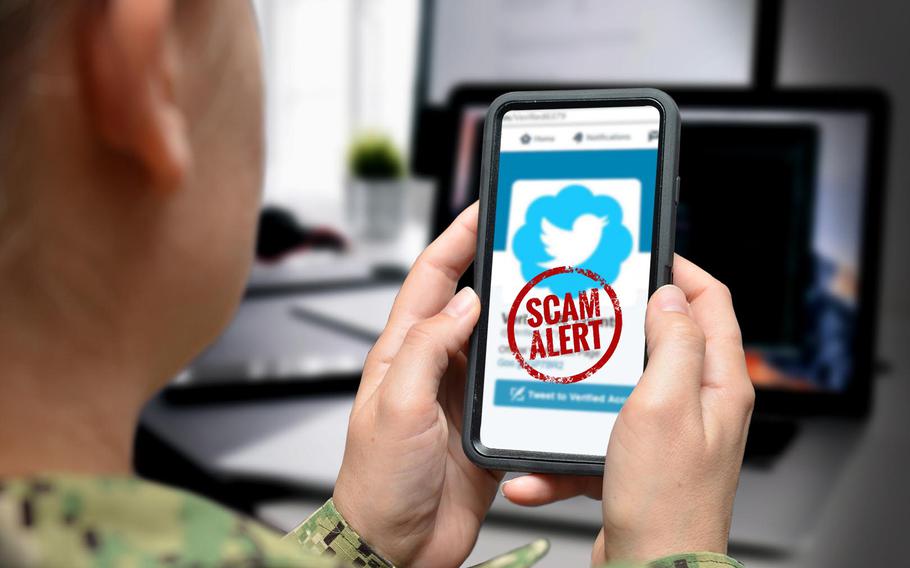
The Veterans Scam and Fraud Evasion, or VSAFE, Act would create a job focused on prevention, reporting, and incident response plans in the wake of a 2023 Federal Trade Commission review that found veterans and military retirees reported $350 million in losses to fraud. (Defense Department graphic )
The Department of Veterans Affairs would have to establish an officer to assist with fraud and scam response and prevention among veterans under a new bill filed Tuesday in the Senate.
The Veterans Scam and Fraud Evasion, or VSAFE, Act would create a job focused on prevention, reporting and incident response plans in the wake of a 2023 Federal Trade Commission review that found veterans and military retirees reported $350 million in losses to fraud. That is up from a 2021 report that showed veterans lost roughly $177 million to scams.
Sen. John Cornyn, R-Texas, introduced the bill alongside Sens. Maggie Hassan, D-N.H., John Boozman, R-Ark., and Angus King, I-Maine. Rep. Ken Calvert, R-Calif., introduced the bill in February in the House and the legislation has gained 10 cosponsors.
“Texas is proudly home to more veterans than any other state, and it is imperative that we do everything in our power to protect our nation’s heroes from predatory scams,” Cornyn said in a statement.
While the VA already offers veterans resources, such as a hotline and website to report veteran-specific scams, this bill would establish a veterans scam and fraud evasion officer and offer more communication within the VA and with veterans. The job is also expected to improve coordination between government agencies.
Roughly 152,000 veterans reported fraud to the FTC in 2023, with about 31% reporting that they lost money in the scam. It is the largest type of military fraud. The next largest category, active-duty service members, made more than 16,000 reports for a loss of about $52 million.
“With scammers increasingly targeting our veterans, we should ensure they have advocates in their corner helping them avoid or mitigate any potential harm and providing helpful resources to fight back,” Boozman said in a statement.
Some of the most common scams among veterans include benefit payment redirection, which occurs when someone gets hold of a veteran’s personal information and gains control of email or bank accounts, according to the VA. Another involves convincing veterans to move their pension benefits into false trusts or annuity products.
To avoid scams, the VA recommends disconnecting any phone calls where the caller demands money or personal information and to verify an organization’s authenticity before making any requested payments.